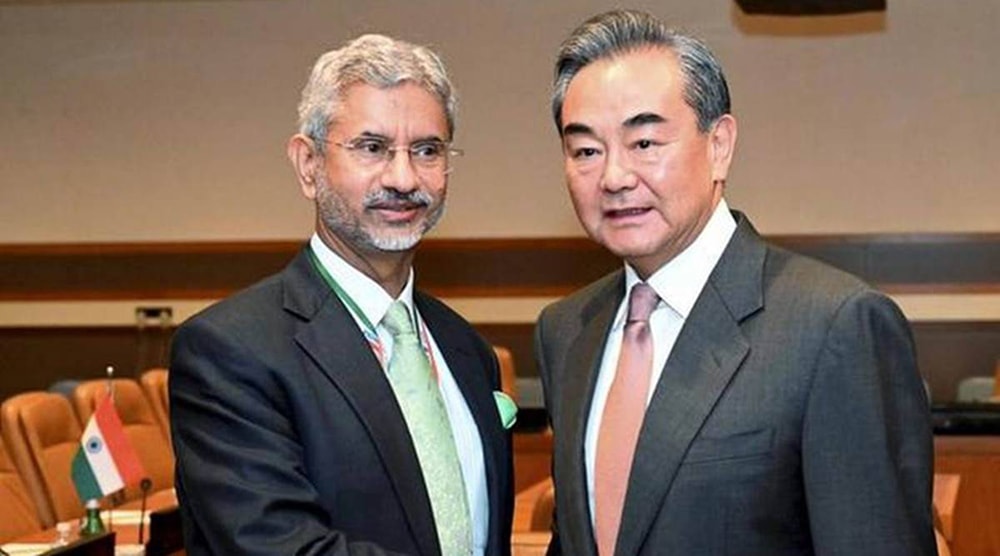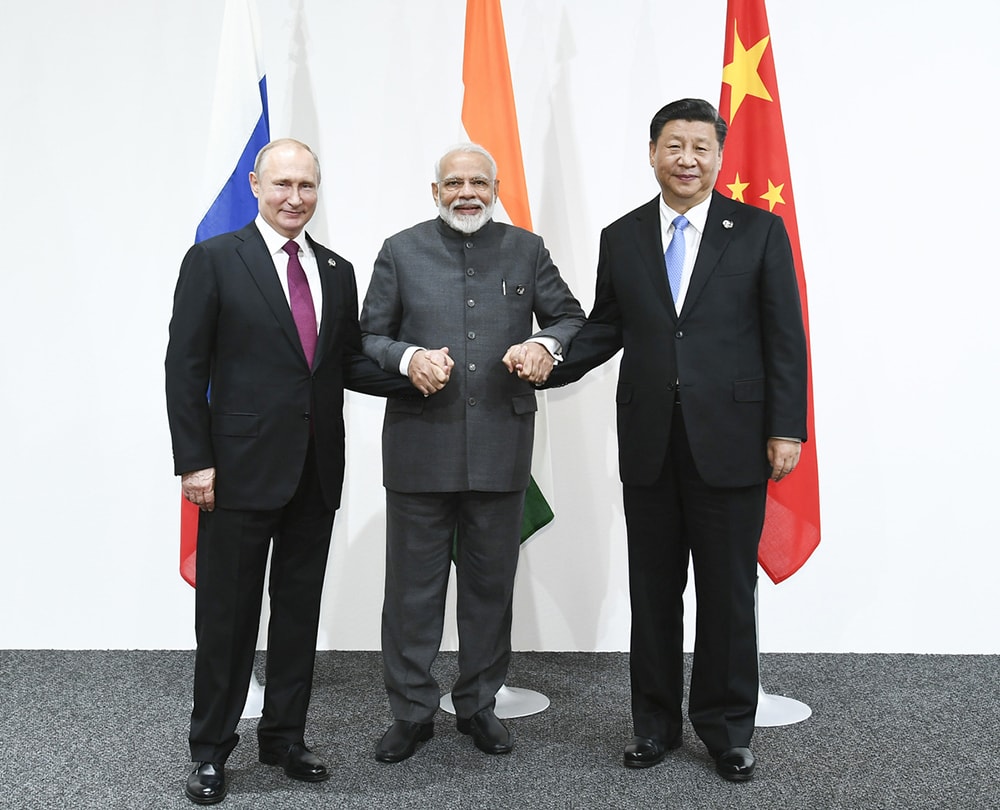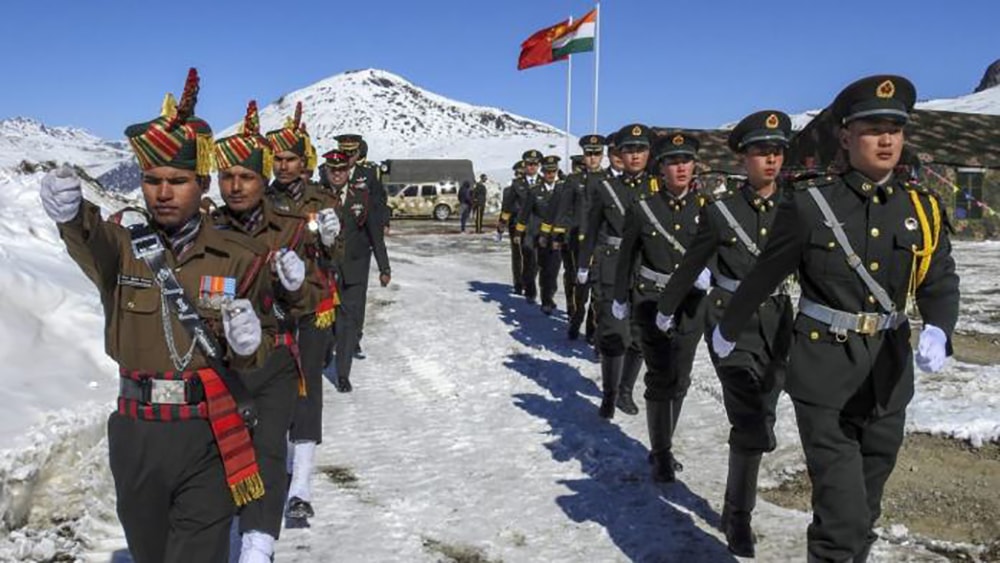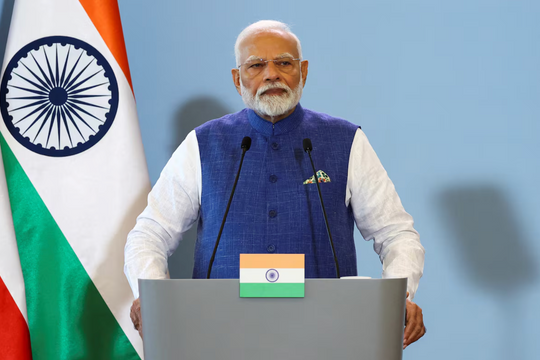China and India agree to reduce tensions: Temporary truce!
(Baonghean.vn) - Just a few days after China and India accused each other of territorial intrusion and criticized each other for violating existing agreements and treaties, the two sides suddenly announced that they had just reached a new 5-point agreement to reduce tensions on the border between the two countries.
Most notably, Indian Foreign Minister Subrahmanyam Jaishankar and his Chinese counterpart Wang Yi agreed that the two militaries must quickly disengage and de-escalate the border dispute – which is considered the most serious in decades. Is this genuine goodwill, or are there strategic calculations behind this de-escalation on both sides?
Catalyst
The agreement between China and India was reached on the sidelines of the Shanghai Cooperation Organization (SCO) Foreign Ministers' Meeting held on September 10 in Moscow, Russia. Mentioning this detail, the public can immediately imagine what the "catalyst" is for this unexpected cooling move between the two sides. President Putin's Russia has probably done many things that the US has not been able to do, which ismediation, cooling down conflicts and hot spots around the world. Although it does not acknowledge the role of a mediator in the Sino-Indian relationship, public opinion has recently witnessed many moves by Russia to bring the two countries together.
 |
| Indian Foreign Minister Subrahmanyam Jaishankar (left) and his Chinese counterpart Wang Yi have just reached an agreement to reduce border tensions between the two countries. Photo: PTI |
While the US has been “rejected” from the role of mediator because it is believed to be biased towards its ally India, Russia has a fairly well-balanced relationship with both New Delhi and Beijing. There are certain geostrategic competitions, but the overall Russia-India, Russia-China relationship is still a mutually beneficial handshake. India’s signing of a defense agreement to buy the S-400 missile system from Russia instead of ordering equivalent items from the US has also shown the prospects of this relationship. Not only that, both3 countries Russia - China - Indiaare currently members and bound together in a number of multilateral cooperation mechanisms such as the Shanghai Cooperation Organization (SCO) or the BRICS Group of Emerging Economies.
Therefore, in the goodwill atmosphere of the SCO Conference held in Moscow, there is no reason why China and India cannot achieve some results with Russia's efforts. In fact, this is also the result of the recent meeting between Indian Defense Minister Rajnath Singh and his Chinese counterpart Wei Fenghe. In reality, it seems that both sides do not want the border conflict between the two sides to become more serious. Because this is not beneficial for both countries. While China is still preoccupied with the war on all fronts with the US, India is also busy with its current new balanced foreign policies. China is also under pressure and criticism from many countries in the region for its actions at sea such as militarization and increased presence in disputed waters.
Not to mention, both countries, especially India, are still having to respond.Covid-19 pandemicThe situation is extremely complicated. Therefore, it is clear that both sides want to alleviate an unnecessary concern. As for Russia, of course, this country has many motivations to make China and India de-escalate. That is, to enhance its role and position in hot spots, international relations, take advantage of economic and trade agreements and contracts with the two major economies of the region...
 |
| Russia - China - India trio. Photo: Xinhua |
Iceberg
According to the five-point agreement just reached, India and China have agreed to maintain dialogue and communication through the Special Representative mechanism on border issues. The two countries also continue to hold meetings within the framework of the China-India Border Affairs Consultation and Coordination Mechanism. The two countries' foreign ministers also agreed to accelerate the completion of new measures to build mutual trust, maintain and enhance peace and security in the border area. At first glance, this agreement seems to have broken the deadlock in the military commander-level negotiations between the two countries in recent times. It may also make people soon forget the fact that, just recently, a series of incidents occurred.serious clashesat the China-India border, and the two countries also sent thousands of additional soldiers to reinforce the forces guarding the land along the Line of Actual Control (LAC).
But clearly, the agreement is like that, but whether the reality will go as expected or not is another matter. For India, domestic pressure with anti-China sentiment, demanding strong action has made it difficult for the Indian Prime Minister Modi's administration to de-escalate with China in recent times. Although an initial agreement has been reached, public opinion must remember that over the past 45 years, a series of agreements between the two sides have been reached to maintain a ceasefire along the border in the eastern part of the Kashmir region, but the atmosphere here has never cooled down!
As for China, de-escalating with India is no different than lowering its position before its opponent. The wariness is also simmering as the Russia-India relationship has a longer and better history than the Moscow-Beijing relationship. Moreover, India also has an alliance with the US, binding and supporting each other within the framework of the Quad group: Australia, India, Japan and the US. Most recently, while tensions with China have not yet cooled down, India and Japan have just signed a defense logistics agreement. Accordingly, they will provide logistical support to each other's military forces in peacekeeping operations, humanitarian activities and when Indian and Japanese warships visit each other's ports.
 |
| Chinese and Indian soldiers at the border between the two countries. Photo: Inventiva |
Observers commented that Beijing must also be skeptical that, although it is a logistics agreement, it will more or less allow New Delhi and Tokyo to be more flexible in accessing each other's bases... Therefore, returning to the latest agreement reached between China and India, this could be a move aimed at some of these countries' rivals, including the US, that Russia, China and India have significant common points and can join hands to cooperate. This would be a scenario that the US does not want. But at the same time, this is just the tip of the iceberg in a triangular relationship with many individual strategic interests. Of course, both China and India will try to realize the agreement just reached to some extent. However, if there is just a hint of a conflict of interests or Russia "lets go" for some reason, the atmosphere on the China-India border will certainly return to being as hot as it was!





.jpeg)

